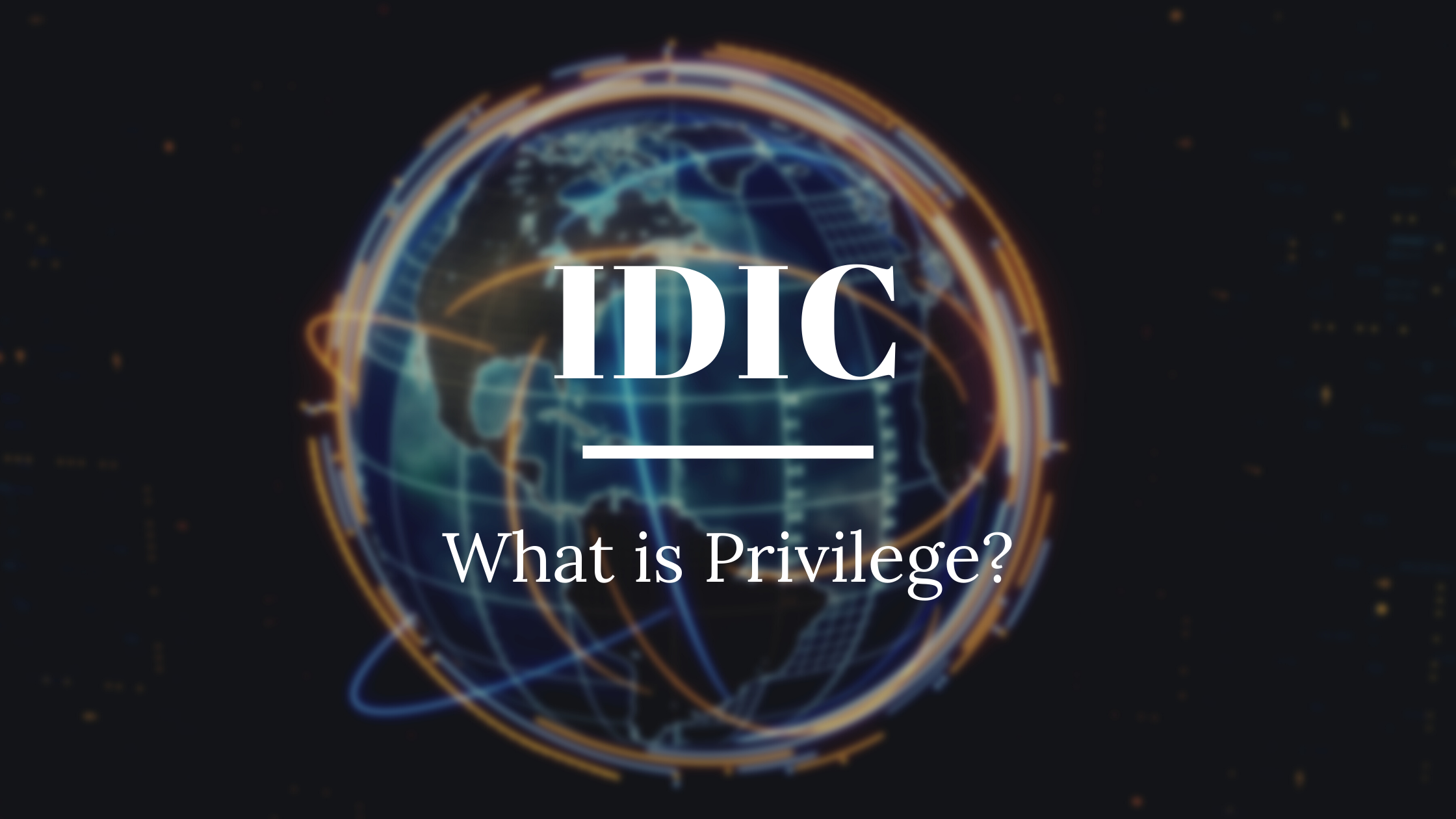Greetings STARFLEET,
Balance is critical, and so is understanding privilege. That’s why for this week’s IDIC discussion, we’re going to examine the idea of privilege and the many ways it can interact with speech/expression.
When most people think of privilege in a social context, they’re thinking of special advantage. In truth, privilege is either an advantage or lack of barrier that only a specific group gets. Privilege is not limited by demographics, as items like being raised in a loving home are also considered.
Every society has a default type of people that built it. Typically, this type carried through the legal system and social norms throughout the history of that society. This is how most privilege develops, and particularly how demographic privilege did.
Let’s look at the U.S. as an example. The Constitution, which creates the other aspects of government, was signed in 1787. It was written by white men, many of whom occupied prominent positions in society (SFA plug, there’s a whole college devoted to this!). As such, the document that created the U.S. as we know it was based on their worldviews.
While there were changes to the document over time, the prime pieces wound their way into the social order and still influence it today. For example, Christian was the preferred religion in the States at the time, even though the same people who wrote the Constitution wrote the 1st Amendment protecting religious freedom. Items like that persisted in how society arranged itself.
Fast forward to today, and these factors are still influential. A Harvard study found that the belief persists that men are better at certain tasks than women. Ethnic-sounding names still receive fewer interviews in the U.S. when submitted with identical resumes. Those old ideas are still influential, and people may not even realize they’re holding them (subconscious bias).
It comes back to privilege and how privilege may be as subtle as a first name passed through your family not being an obstacle to overcome to get a job interview. Equality and equitability do not have winners and losers. Instead, we can all help create change by recognizing our privileges
Let’s be the change STARFLEET.


Yep, in a nutshell. If there are no societal limits on what you can do? You might just be privileged and probably don’t even realize it.
Provided in our Discord discussions – and it belongs here.
https://www.youtube.com/watch?v=4K5fbQ1-zps
We all run our own race, and deal with our starting positions – but don’t think that factors that have nothing to do with you as an individual helped determine that position.